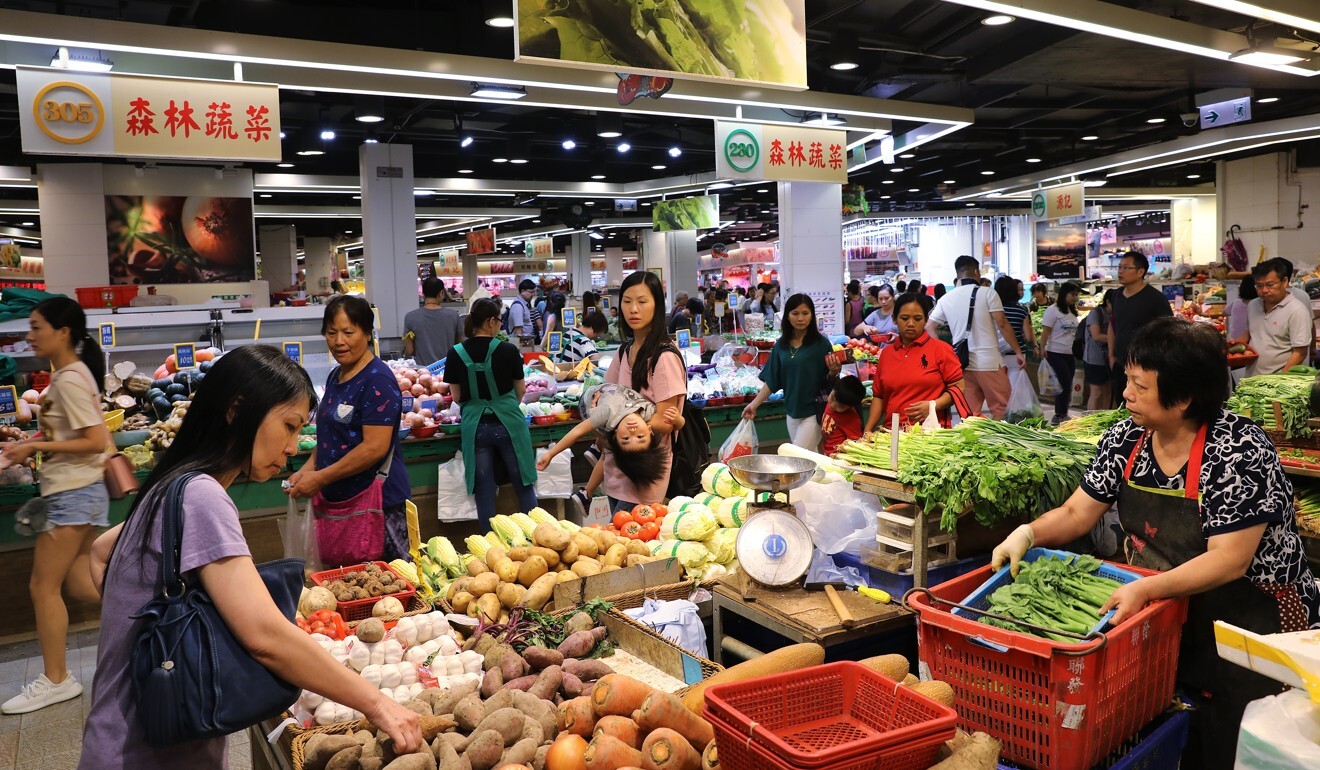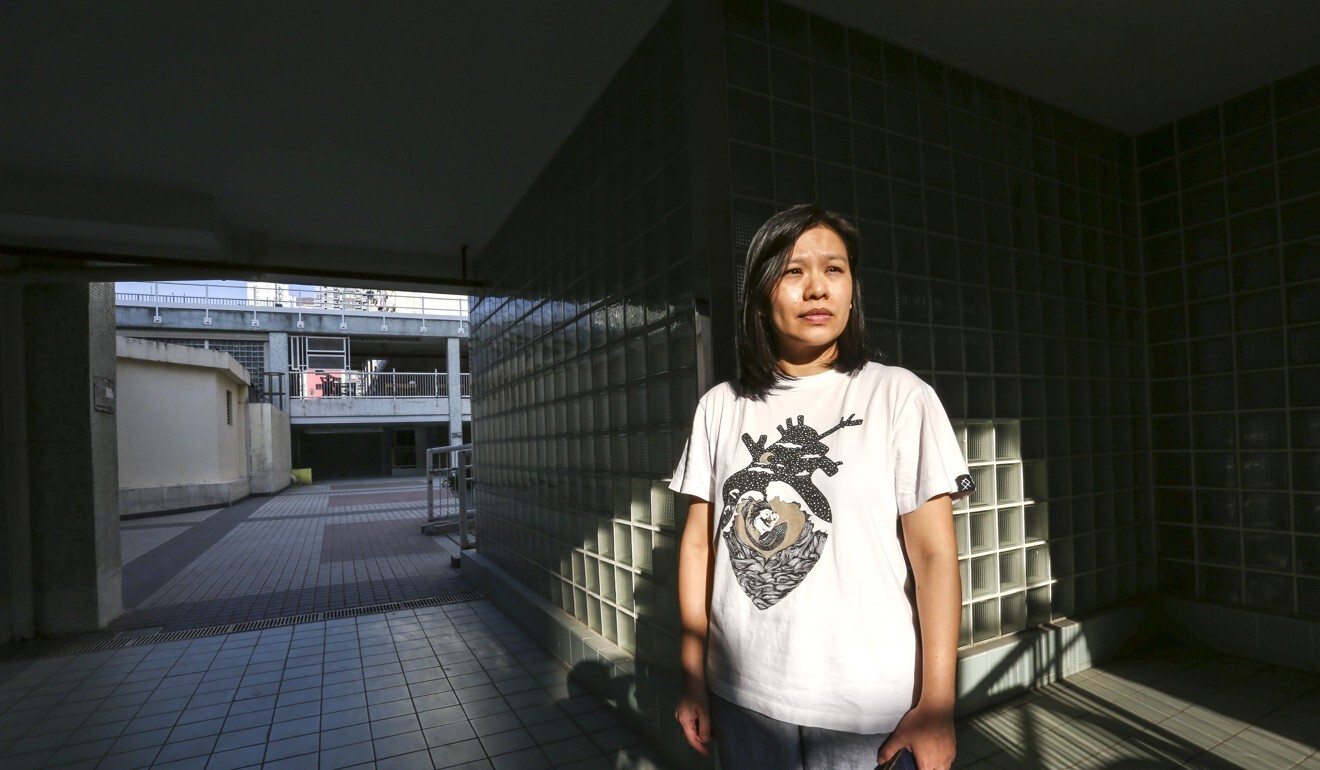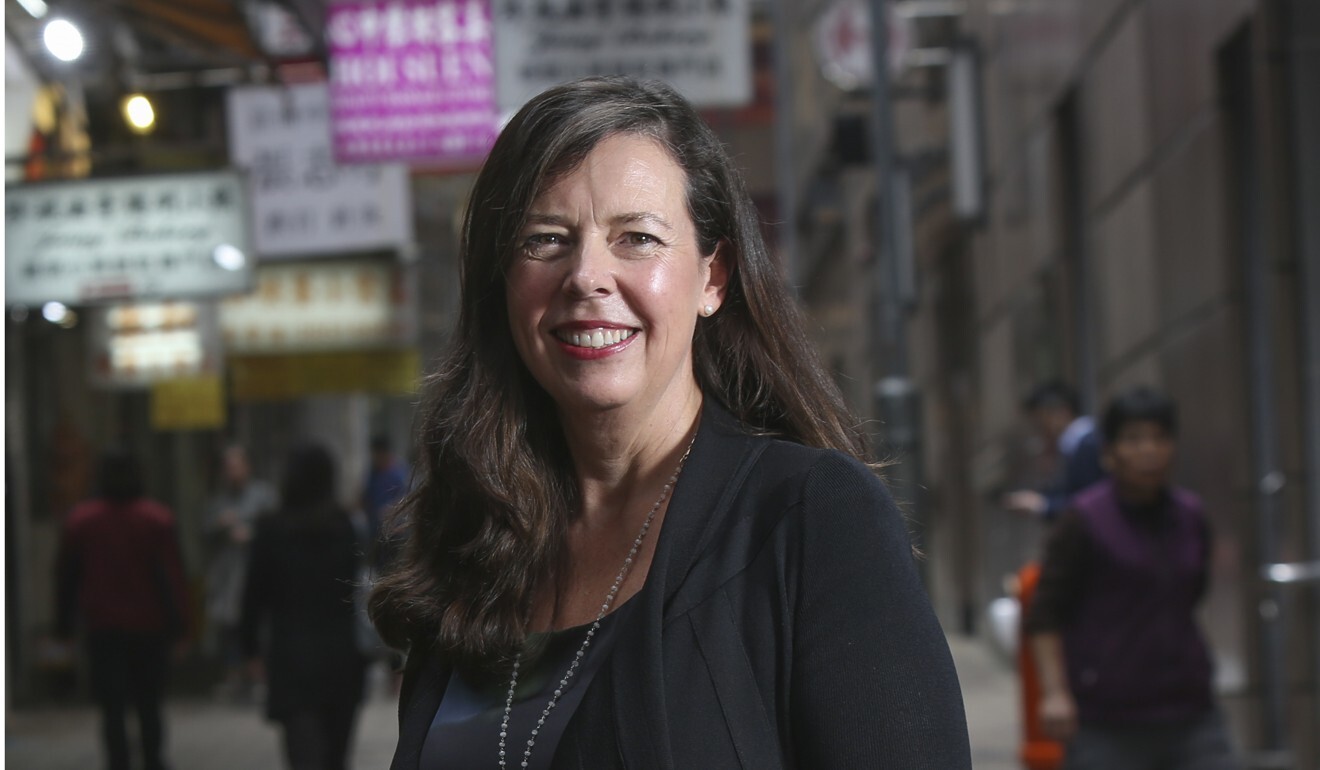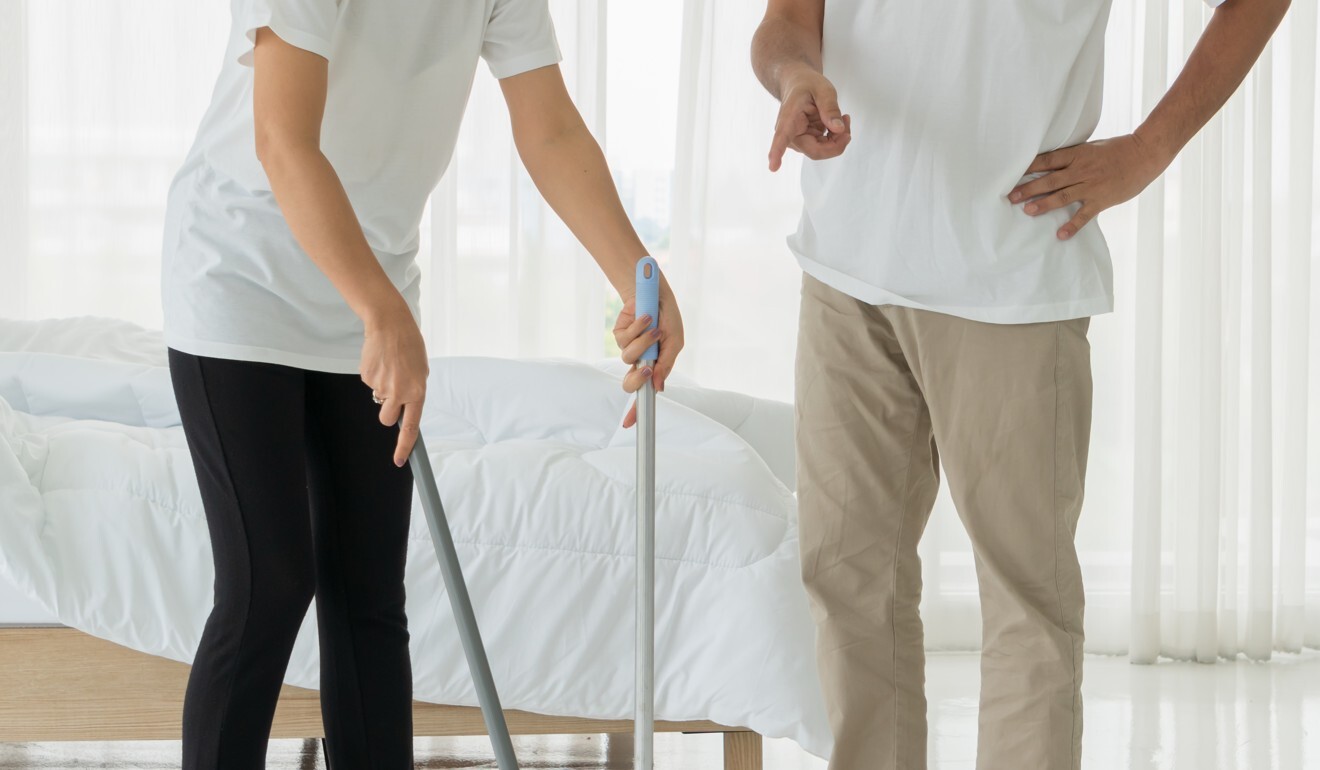
Pandemic leaves Hong Kong women stressed by caregiving, household chores and husbands who say ‘that’s your job, not mine’
- Time to drop notions of ‘male, female roles’ and start sharing household chores, experts say
- Men too often avoid helping at home as entrenched gender stereotypes put unfair burden on women, according to advocates
Her husband, a civil servant in his 40s, has a short fuse and is given to nitpicking. He does not help care for their five-year-old son or their one-year-old daughter, or do any housework.
“Every time I complained and asked him to help, he accused me of being unreasonable and said these chores were what I should do as a woman and mother,” she says.
Having quit her clerical job three years ago to stay home, she relies on her husband financially. She says he criticises her constantly for not doing enough and picks quarrels, which sometimes lead to pushes and shoves.

Leung says she has been feeling pressured, especially during the pandemic, with her husband now at home more. But she has no one to turn to.
Every time I complained and asked him to help, he accused me of being unreasonable
A United Nations report on the pandemic’s impact on women says gender inequalities have deepened in areas ranging from health and the economy, to security and social protection.
The anti-discrimination watchdog received 336 complaints last year, with about 80 per cent lodged by women.

‘Covid-19 has exacerbated gender inequalities’
Fiona Nott, chief executive officer of non-profit The Women’s Foundation (TWF), says the city still lags behind on gender equality. At work, employers are biased against female employees who are mothers, while at home, women are expected to shoulder most of the childcare, care for the elderly and household duties.
“Covid-19 has exacerbated existing inequalities and disproportionately impacted women and girls in disturbing new ways – from extra care work and household duties, to financial instability and a heightened risk of domestic violence,” she says.
Single mothers, women in low-income households, and those who lost their jobs in sectors dominated by women, such as catering, tourism and hospitality, are among the worst hit, Nott adds.

Single mother Yu, 46, lost her part-time jobs in cleaning and sales during the pandemic. With schools closed, she has stayed home to care for her 10-year-old son, who has attention deficit hyperactivity disorder.
Asking to be identified by only her surname, she says she divorced her husband early last year after he cheated on her. She used to earn about HK$9,000 (about US$1,160) a month, while her ex-husband sometimes gave them HK$2,000 or HK$3,000 a month, or nothing at all.
More reports of violence against women, children in Hong Kong
Her struggle took a turn for the worse after the Covid-19 outbreak started in January. There have been fewer part-time jobs available, and it is stressful tending to her son, who snaps easily, throwing and breaking things.
With no income, Yu has had to eat into her meagre savings. She says life has turned upside-down, she feels fatigued, and has no time for a break.
Call for change in ‘a traditional Chinese society’
Hong Kong’s relatively low labour force participation for women declined to 53.9 per cent during the March to May period, compared to 65.5 per cent for men, according to official statistics.
Women are under-represented in leadership roles, and over-represented in the informal economy, which is characterised by job insecurity. They generally earn less and hold less-secure jobs than men. According to TWF, women earn 22 per cent less than men, and hold only three in 10 management roles in Hong Kong.
Many of the sectors employing large numbers of women, including retail, hospitality and tourism, have been hit hardest by the pandemic, seeing lay-offs and pay cuts for those still at work.
The pandemic has also piled pressure on women at home.
Pandemic-related stress and isolation driving more in Hong Kong to drink
A survey of 200 women in April, by the Hong Kong Federation of Women’s Centres, shows that the number of women who spend more than 10 hours a day on domestic work and caregiving more than doubled during the pandemic.
According to the UN report, women globally spend on average 4.1 hours a day on unpaid care and domestic work, compared to 1.7 hours a day for men.
Fiona Yuen Sau-ying, social worker and head of department at the Hong Kong Young Women’s Christian Association (YWCA), a non-governmental organisation in the city since 1920, points to the prevailing gender stereotype that men are breadwinners and women, homemakers.
“Hong Kong is a traditional Chinese society. Women are still considered more thorough and better at doing tedious work than men, and therefore the better choice when it comes to caregiving roles,” she says. “But must it be this way?”
Is Hong Kong losing the fight against domestic violence?
She says having to bear a heavier load at home has an effect on women’s performance in their jobs, while those who are unable to find paying work suffer low self-esteem and have less of a say at home.
While acknowledging that men bear the pressure of being breadwinners, Yuen thinks Hong Kong couples ought to share domestic chores, and what each partner takes on should be based on ability, not gender.
Economic and social stresses coupled with pandemic-related confinement and social-distancing measures have led to a rise in cases of violence against women. Many have found themselves trapped at home with their abusers.
Help centres in Hong Kong have reported a sharp increase in domestic violence cases since the start of the pandemic, with women making up most of the victims.
Some men doing more at home now
The Labour and Welfare Bureau says the government is committed to promoting gender equality in Hong Kong, and that the two rounds of pandemic relief measures apply equally to women and men.
But Sisi Liu Pui-shan, director of the Hong Kong Federation of Women’s Centres, says given the entrenched gender inequalities, the government should introduce gender-sensitive policies to support women.
For example, she says, more should be done to help victims of violence, and those who need to get away from their abusers should receive financial help to temporarily stay in hotels if shelters are overwhelmed.
Gender education also needs improving, she adds, so that Hongkongers learn to discard the stereotypes about men and women’s roles.
Domestic abuse: why many suffer in silence
Dr Michael Eason, a Hong Kong-based psychologist and counsellor, says the subject of gender inequality has come up more often in therapy sessions during the pandemic.
Hong Kong women have also become more comfortable about speaking up against stereotypes they consider unfair.
“Some women confronted by existing gender inequalities in their relationships have begun questioning these culturally prescribed roles and are seeking more of an equal balance,” he says.
He adds, however, that he has also noticed some Hong Kong men taking on more domestic and caregiving responsibilities during the pandemic.
He says most of these men, in their 30s to 50s, have been spending more time with their children, helping with online schooling and becoming more actively engaged in organising family activities for holidays, birthdays and the recent Mother's Day.

Agreeing that some men have started sharing domestic chores, the YWCA’s Yuen says now might be a good time to get Hongkongers to fix their notions about male and female roles.
“The pandemic offers an opportunity to challenge the power dynamics between women and men, and redress the distribution of domestic responsibilities,” she says.
If Bobby Wong is anyone to go by, there is hope yet.
Working from home during the pandemic made him realise how much his wife had to do in their 350 sq ft flat. Both are clerks in their 20s, and have no children.
The pandemic offers an opportunity to challenge the power dynamics between women and men
Wong began helping with the housework. He did the cooking and the dishes, and sometimes also helped with the laundry, as well as cleaning and disinfection, which they did more frequently due to the virus.
He says his wife appreciates his efforts, and he has continued to share the housework after resuming normal office work.
Wong agrees with the idea of equal distribution of domestic work, though he admits there are days when he is too tired to do a thing when he returns home after midnight from working the night shift.
“I’ve realised the tough housework my wife has been taking care of,” he says. “Spending more time at home, I felt obliged to help with the chores.”

